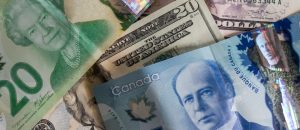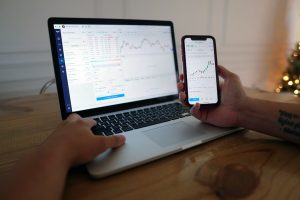Forex, or the foreign exchange market, is the largest financial market in the world, with daily trading volumes exceeding $5 trillion. It is a decentralized market where currencies are bought and sold, and its popularity has grown significantly in recent years, especially among investment bankers. Investment bankers trade forex to make profits for their clients or their own firms. In this article, we will discuss how investment bankers trade forex.
Firstly, investment bankers use various trading strategies to trade forex. One common strategy is the carry trade, where they borrow money in a low-interest-rate currency and invest in a higher-interest-rate currency. The difference between the two interest rates is their profit. Another strategy is the momentum strategy, where they buy or sell currencies based on their strength or weakness in the current market. They also use technical analysis, which involves studying price charts and trends to predict future price movements.
Investment bankers have access to various trading platforms, such as Bloomberg Terminal, which provides real-time news and data on the forex market. They also use algorithmic trading, which involves using computer programs to execute trades based on predetermined rules.
Investment bankers also need to have a deep understanding of the forex market and the factors that affect currency prices. They monitor economic indicators, such as gross domestic product (GDP), inflation, and employment data, to assess the health of a country’s economy. They also keep an eye on geopolitical events, such as elections and trade agreements, that can impact currency prices.
To trade forex, investment bankers use leverage, which allows them to control large positions with a small amount of capital. For example, if an investment banker wants to buy $100,000 worth of euros, they can use leverage to control the position with only $1,000. However, leverage also increases the risk of losses, so investment bankers need to use it wisely.
Investment bankers also use hedging strategies to manage risk. Hedging involves taking a position in the opposite direction of the original trade to offset potential losses. For example, if an investment banker buys euros, they can also sell an equal amount of euros to reduce their risk.
Finally, investment bankers need to have a strong risk management strategy in place to protect their clients’ or their own firms’ capital. They set stop-loss orders, which automatically close out trades if the price moves against them to limit potential losses. They also have strict risk management policies, such as limiting the amount of leverage they use and diversifying their portfolio to reduce risk.
In conclusion, investment bankers trade forex using various strategies, trading platforms, and tools. They need to have a deep understanding of the forex market and the factors that affect currency prices, as well as strong risk management strategies to protect their capital. Forex trading can be highly profitable, but it is also risky, so investment bankers need to use caution and discipline to succeed in this market.





